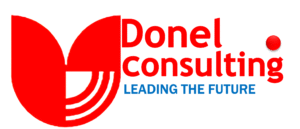Get insights from our previous missions
Host countries, often grappling with resource constraints and overstretched infrastructure, struggle to accommodate the influx of refugee students.
Revolutionizing educational paradigms through seamless incorporation of psychosocial reinforcement and trauma recovery methodologies within academic frameworks represents a pivotal shift in pedagogical approaches. Such integration forms an integral component of a multifaceted, stratified support mechanism encompassing broad-spectrum preventative strategies, pinpointed interventions for vulnerable learners, and well-defined conduits to specialized assistance for individuals necessitating more intensive care.
School-wide trauma-informed policies and procedures form the bedrock of a holistic educational approach, meticulously crafted to nurture an atmosphere where healing and learning intertwine seamlessly for every student, with particular emphasis on those grappling with the lingering effects of adverse childhood experiences (ACEs). Such a framework permeates the very fabric of educational institutions, infusing every facet of school operations with a deep-seated commitment to fostering resilience and promoting academic success.
Trauma-Informed Education: Healing the Invisible Scars
The toxic stress of trauma can have a devastating impact on refugee children’s mental health, impairing their ability to learn, grow, and thrive in the classroom. To counter this, we must weave trauma-informed practices and social-emotional learning into the very fabric of refugee education. By creating nurturing school environments that promote resilience, emotional coping skills, and a sense of safety and belonging, we can help refugee students heal from the invisible scars of trauma and lay the foundation for academic success.
Mechanisms for farmers to predict market demand and adjust planting strategies accordingly.
The need prioritize local markets that directly connect farmers with consumers.
Local markets and farmer cooperatives are not isolated forces. They work in tandem. Cooperative-produced goods find ready markets locally, while market demand informs cooperative production decisions.
Managing Public Debt : An ethical responsibility for future citizens
A critical analysis of the public debt situation in Africa
Are you looking for a new challenge that will push you to excel and achieve your goals ?
Harnessing Social Capital
The capacity to tackle collective challenges through coordinated action based on relationships of trust and reciprocity. Communities with strong traditions of cooperation are endowed with reserves of social capital that can be productively tapped for development purposes.
Social Impact Bonds and the Private Sector
Attracting the private sector to play a bigger role in tackling complex development challenges.
Consulting firms can provide valuable expertise in structuring SIBs, from feasibility studies to implementation.
By aligning incentives and transferring financial risk from governments to private investors, SIBs create a unique ecosystem where profit-driven entities collaborate with public agencies and service providers to achieve measurable social outcomes.
This model not only mobilizes additional resources for development initiatives but also introduces market discipline and performance-driven approaches to social service delivery, potentially leading to more efficient and effective interventions in areas such as healthcare, education, and criminal justice reform.
Intergenerational programs: Fostering connections between different age groups
Evaluating the impact of these programs is another major challenge.
Traditional development indicators often struggle to capture the nuances of qualitative changes in intergenerational relationships and social capital. Innovative methodologies, combining quantitative and qualitative approaches, are needed to adequately measure the long-term effects of these initiatives on social cohesion and community well-being.
Weak institutional frameworks, and economic disparities have created fertile ground for corrupt practices to flourish.
The new approach centers on fostering a culture of integrity through education and community engagement. Implementing comprehensive ethics curricula in schools, starting from primary education through university levels, lays the foundation for a generation that values transparency and accountability. These programs should incorporate local case studies and traditional values that align with anti-corruption principles, creating a culturally resonant message.
Empowering women in the business sector is not just a matter of social justice;
it’s a strategic imperative for economic growth and innovation.
Promotion of traditional pharmacopoeia
Training and skills development
Favorable regulatory and incentive framework
Regional market access strategy
Promotion of research and development
Fight against counterfeiting and illicit market
Strengthening supply chain and pharmaceutical management system.
